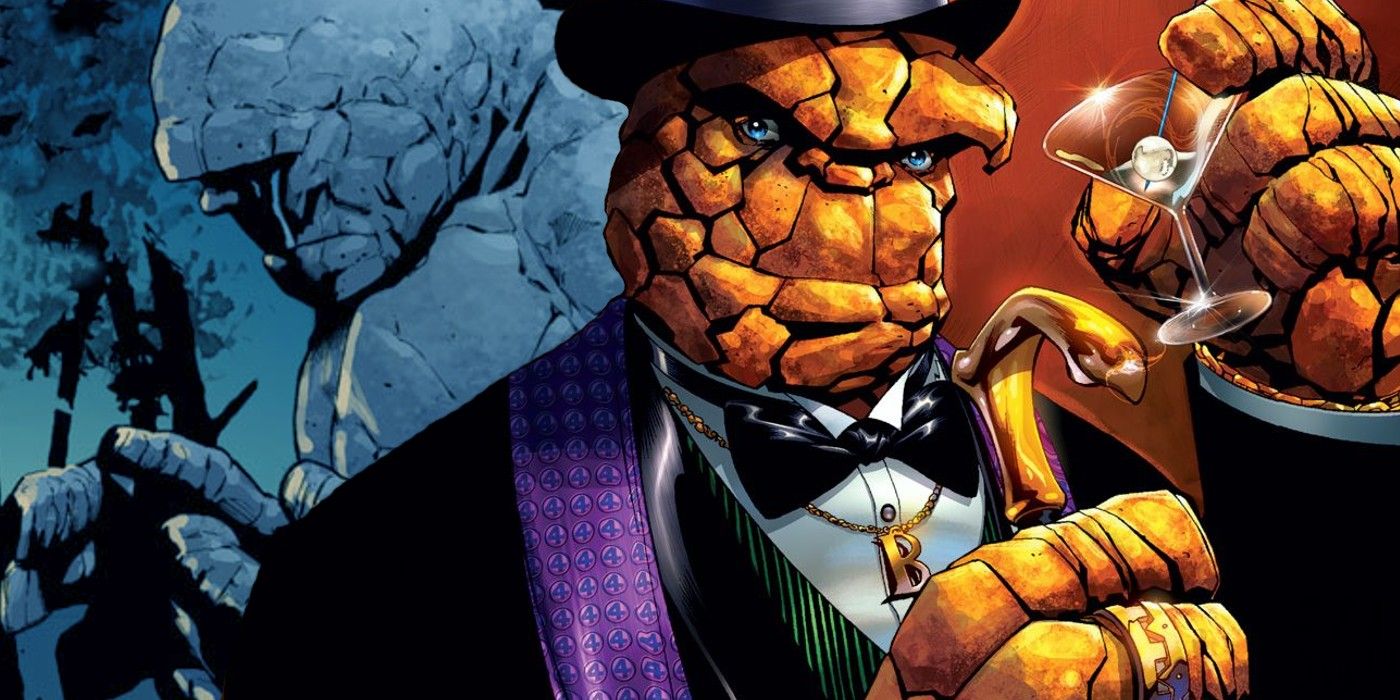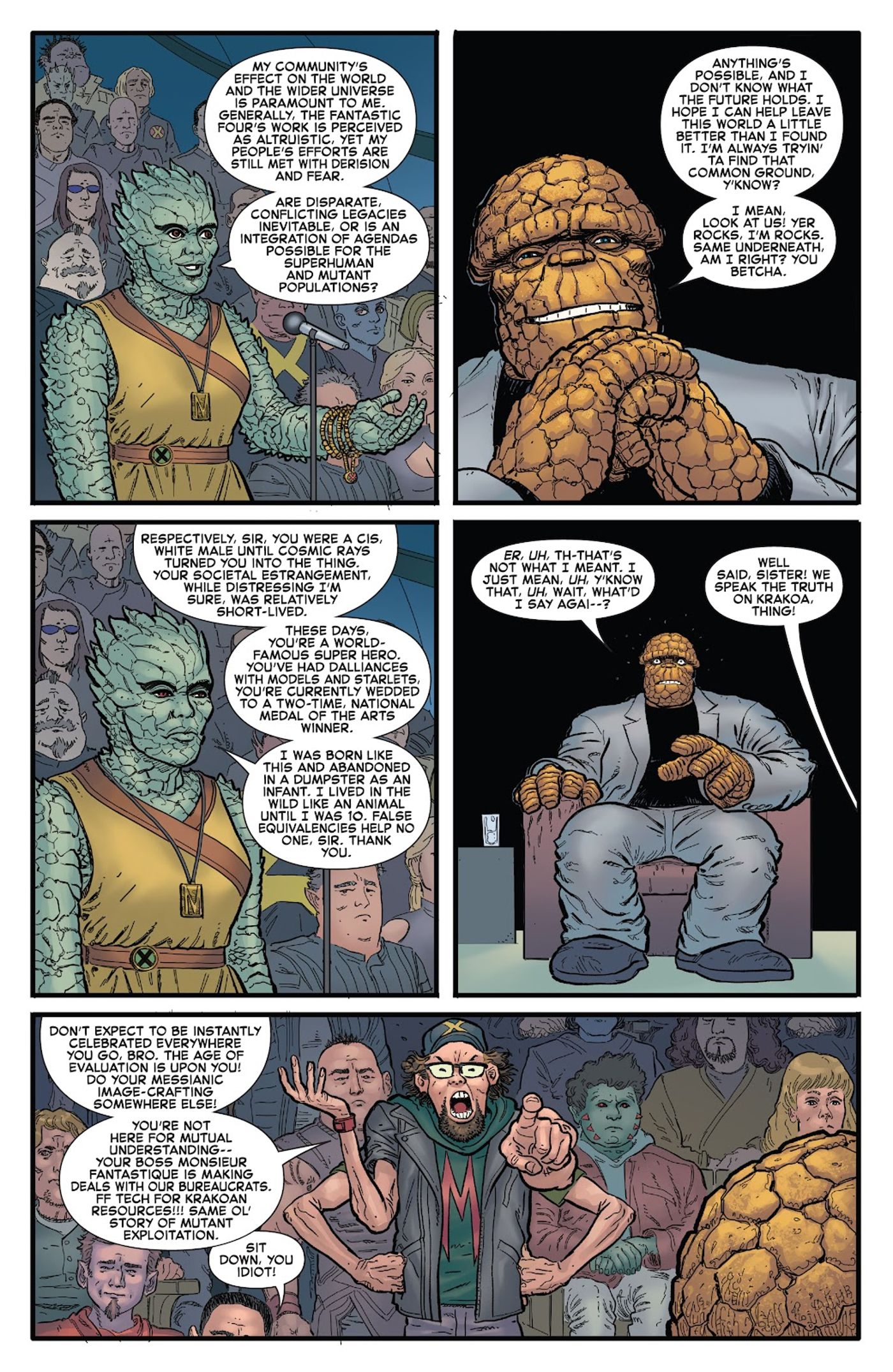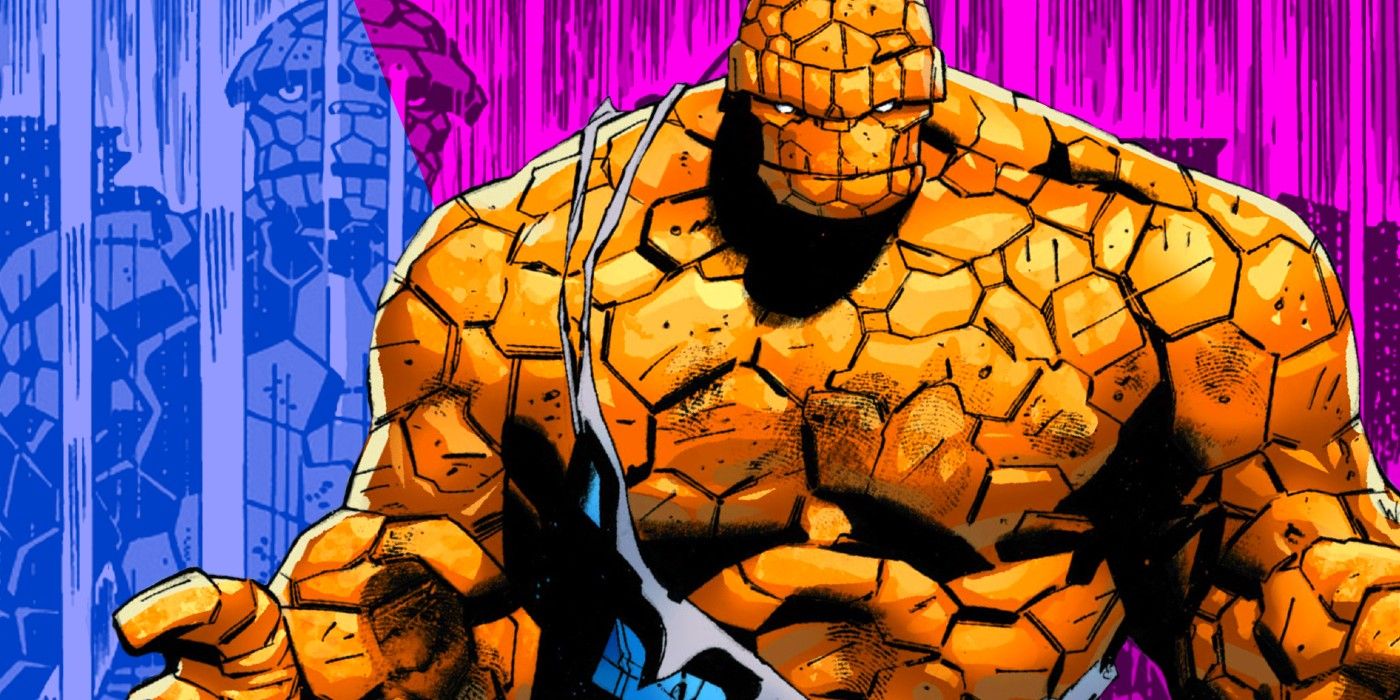Warning: SPOILERS for Clobberin’ Time #2Marvel’s mutants call out the Thing (Benjamin Grimm) of the Fantastic Four for his supposedly tragic origin story. While it’s well known that the Thing struggles to accept his monstrous appearance, a Krakoan mutant points out that, compared to other ‘freaks’, Ben Grimm has not had such a bad life after all.
In Clobberin’ Time #2, by Steve Skroce and Bryan Valenza, Ben Grimm has been invited to Krakoa, the island nation of Marvel’s mutants, to be a guest of Krakoa University’s symposium on superhuman and mutant relations. A member of the audience – a mutant woman with rocklike skin – asks the Thing if the superhuman and mutant population can really have a common agenda, to which Ben replies pointing out the similarities between him and his interlocutor. However, the woman answers that Ben was born as “a cis white male” before the Fantastic Four’s incident with the cosmic rays, and after that, he became a rich and successful superhero, with “dalliances with models and starlets“, and is currently married to a beautiful world-renown artist. Thus, the Thing’s “societal estrangement” was short-lived, especially compared to the most unfortunate mutants.
The Thing’s Hypocrisy Is Called Out By a Young Mutant
The Thing’s monstrous appearance is a key part of his character and one of the reasons why Ben Grimm is the most beloved (and commercially successful) member of the Fantastic Four. Perhaps more than any other Marvel character, the Thing represents the company’s founding motto of “superheroes with super problems”, and the idea that having amazing powers does not necessarily make your life better. However, many readers have pointed out that, over the decades, the Thing’s initial tragic aura has waned and, despite his periodical whining, Ben Grimm’s life is not that bad after all. In fact, it’s clear that Ben Grimm has finally learned to embrace being the Thing.
As the young mutant points out, she was born with a non-conform look, which meant she was abandoned in a dumpster and grew up in the wild until she was ten. Ben, instead, got his powers and appearance when he was already an adult, meaning he could deal with them better while also having a support system (the Fantastic Four) that managed to turn that accident into a gift. This exchange actually brings to light the biggest issue that writers have to deal with regarding the Thing. The tragic nature of the character is a fundamental part of his charm, but at the same time, affectionate readers also want to see Ben move forward in life and find the happiness he deserves.
The Thing’s Story Is Not So Tragic After All
Marvel’s mutants are the ultimate rejects, and many years after their appearance they are still shunned and feared. However, in a world filled with superpowered beings who are not necessarily mutants, one could argue why only the people with the X-gene have to bear such a burden. The Thing‘s attempt to compare his plight with that of an unfortunate mutant who was thrown in the garbage at birth points out the hypocrisy of the idea that a rich and successful superhero could ever portray himself as a victim, and it’s exactly the type of nuanced storytelling that makes Marvel’s stories so compelling.
Clobberin’ Time #2 is available now from Marvel Comics.



